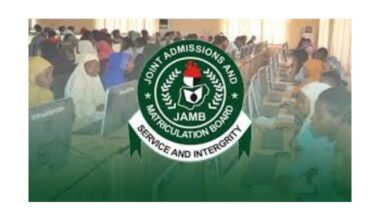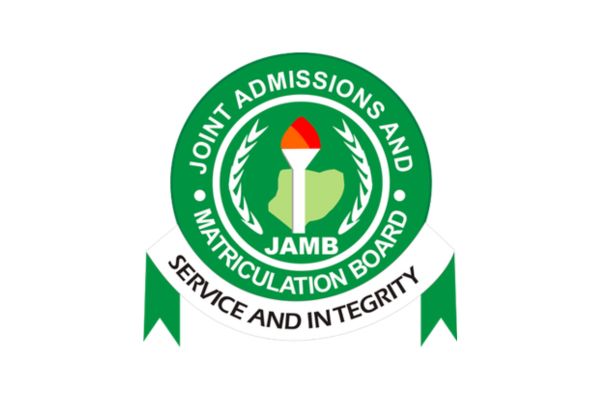Among the subjects tested, Government holds a significant place, evaluating candidates’ understanding of political systems, governance, and civic responsibilities. To ace the Government section, aspirants often turn to JAMB past questions.
Government Jamb Past Questions
Master the JAMB Government section with our comprehensive Government Jamb Past Questions. Ace the exam by practicing real questions and boosting your confidence. In this article, we will explore the structure of these questions, and provide insights on how to effectively use them for success.
1. Which organ of the government is referred to as the last hope of the common man?
A. The legislative
B. The parliament
C. The executive
D. The judiciary
2. In a parliamentary system, powers of the organs of government are
A. diffused
B. separated
C. fused
D. divided
3. Fascism is associated with
A. Karl Marx
B. Benito Mussolini
C. Adolf Hitler
D. Mao Tseng Tung
4. Checks and Balances enable the judiciary to
A. interpret the constitution
B. apply the law
C. declare null and void actions of the other organs
D. execute the law
5. A citizen has the right to refuse only one of these calls
A. to participate in a political rally
B. to military service
C. to jury service
D. to give evidence in court
6. The law of libel limits a citizen’s right of freedom of
A. association
B. movement
C. worship
D. expression
7. Option A4 method of voting was introduced by
A. Professor Eme Awa
B. Chief Michael Ani
C. Professor Humphrey Nwosu
D. Justice Erereka Ovie-Whiskey
8. One of these is not a professional pressure group
A. Academic Staff Union of Universities
B. Nigeria Medical Association
C. Nigeria Bar Association
D. Nigeria Chamber of Commerce
9. The grade of the civil services closest to the minister is
A. the technical grade
B. the administrative grade
C. the executive grade
D. the clerical grade
10. Criticisms of the civil service do not include
A. secrecy
B. red-tap
C. strict adherence to rules
D. openness
11. The disadvantage of one-party system is that it
A. makes accountability difficult
B. negates freedom of association
C. emphasize political differences
D. delays decision making
12. Citizenship refers to the
A. indigenous member of a state
B. social status of a person in a state
C. highest position in a state
D. legal status of a member of a state
13. The main function of public opinion is to
A. change the policy of government
B. provide direction for public policy
C. support the policy of government
D. indoctrinate the people
14. A typical form of delegated legislation is
A. act of parliament
B. decree
C. bye-law
D. gazette
15. One of the major sources of constitution is
A. judicial precedence
B. political debate
C. opinion poll
D. executive order
16. Coalition government arises when
A. One of the parties has a majority in the parliament
B. No party has a majority in parliament
C. Two or more party cooperate to pass a bill in parliament
D. The ruling party is defeated in parliament
17. The main attribute of a state are
A. population, territory, government and sovereignty
B. the press, the legislature, the executive and the judiciary
C. federal, state and local governments
D. government, the policy and the armed forces
18. Nigeria observed the principle of collective responsibility between
A. 1993 and 1999
B. 1985 and 1993
C. 1979 and 1983
D. 1960 and 1966
19. Under the presidential system of government, the legislature and the executive are
A. elected separately to a fixed term
B. elected separately to an unfixed term
C. appointed by the judiciary to a fixed term
D. appointed at the same time to an unfixed term
20. Federalism was introduced in Nigeria under the
A. Richards Constitution
B. Lyttleton Constitution
C. Macpherson Constitution
D. Independence Constitution
21. The N.C.N.C. sent a delegation to London to protest against the
A. Republican Constitution
B. Richards Constitution
C. Lyttleton Constitution
D. Macpherson Constitution
22. Under the 1963 Republican Constitution, the president exercised
A. judicial powers
B. executive powers
C. nominal powers
D. concurrent powers
23. The first black African state to gain political independence from a colonial power was
A. Nigeria
B. Liberia
C. Ghana
D. Ethiopia
E. Guinea
24. In federal constitution, legislative powers that are shared by two levels are referred to as
A. exclusive
B. extra-ordinary
C. residual
D. concurrent
25. In the Igbo political system, the most senior member of the council of elders is the
A. okpara
B. obi
C. eze
D. ofo
26. Proportional representation favours
A. multi-party system
B. three-party system
C. two-party system
D. one-party system
27. One major factor that differentiates the presidential from the parliamentary system is
A. separation of powers
B. judicial independence
C. passage of bills
D. party system
28. A special election organized to decide on a political issue is known as
A. plebiscite
B. by-election
C. general election
D. primary election
29. Which of these was the main organ of the defunct OAU?
A. the Liberation Committee
B. the Council of Ministers
C. the Commission for Mediation, Conciliation and Arbitration
D. the Assembly of Heads of State and Government
30. Fascism originated from
A. Greece
B. Italy
C. China
D. Germany
31. A limited geographical territory with a population and sovereign authority is
A. society
B. community
C. state
D. government
32. In British Parliamentary System, the Monarch can be referred to as the
A. Queen in parliament
B. Queen and parliament
C. Queen’s parliament
D. Queen’s assembly
33. A government by people with pride of birth is called
A. democracy
B. aristocracy
C. autocracy
D. monarchy
34. In Nigeria, representations of states in the Upper House is based on
A. population
B. ethnicity
C. equity
D. equality
35. Which organ of government is referred to as the last hope of the common man?
A. the legislature
B. the parliament
C. the executive
D. the judiciary
36. A Unitary System of Government leads to
A. too much expenditure
B. duplication of resources
C. delay in passage of bills
D. quick passage of bills
37. In Parliamentary System of government, powers of organs of government are
A. diffused
B. separated
C. fused
D. divided
38. Fascism is associated with
A. Carl Marx
B. Benito Mussolini
C. Adolf Hitler
D. Mao Tseng Tung
39. A written Constitution must contain a
A. dialogue
B. prologue
C. preamble
D. discourse
40. Checks and Balances empower the Judiciary to
A. interpret the constitution
B. apply the law
C. declare null and void actions of other organs
D. execute the law
41. Associations whose main interest is to influence public policies without having to capture political power are
A. Pressure groups
B. Trade unions
C. Political parties
D. Professional groups
42. Government by the wealthy is known as
A. Plutocracy
B. Democracy
C. Oligarchy
D. Aristocracy
43. The citizenship of a country could be acquired through
A. presidential proclamation
B. parliamentary legislation
C. registration arbitration
D. birth and naturalization
44. The Eastern and Western regions of Nigeria achieved the status of self-government in
A. 1950
B. 1957
C. 1959
D. 1955
45. Leaders who spearheaded the transformation of the Organization of African Unity into African Union were from
A. Nigeria, Libya and South Africa
B. Nigeria, Liberia and Morocco
C. South Africa, Libya and Zambia
D. Nigeria, Libya and Kenya
46. The atomic bomb tests carried out around the Sahara Desert made Nigeria severe relations with
A. Canada
B. Germany
C. France
D. Britain
47. The first federal constitution in Nigeria was the
A. Clifford’s Constitution
B. Macpherson Constitution
C. Lyttleton Constitution
D. Independent Constitution
48. In Judicial administration, the term ‘the Bench’ refers to the
A. Judges
B. Lawyers
C. Registrars
D. Litigants
49. A non-monarchical state can be described as a
A. Confederation
B. Republic
C. Federation
D. Monarchy
50. The first successful disengagement of the military from politics in Nigeria was carried out by the government of
A. Murtala-Obasanjo
B. Abdulsalami Abubakar
C. Buhari-Idiagbon
D. Ibrahim Babangida
Conclusion
Government JAMB past questions are invaluable tools for aspirants preparing for the JAMB examination. They provide a comprehensive understanding of the exam’s structure, help candidates review essential content, and improve their exam-taking skills.
By incorporating these past questions into their study routine, students can boost their confidence and increase their chances of success in the Government section of the JAMB examination. Remember, diligent preparation and strategic use of past questions are key to unlocking success in this crucial academic endeavor.





